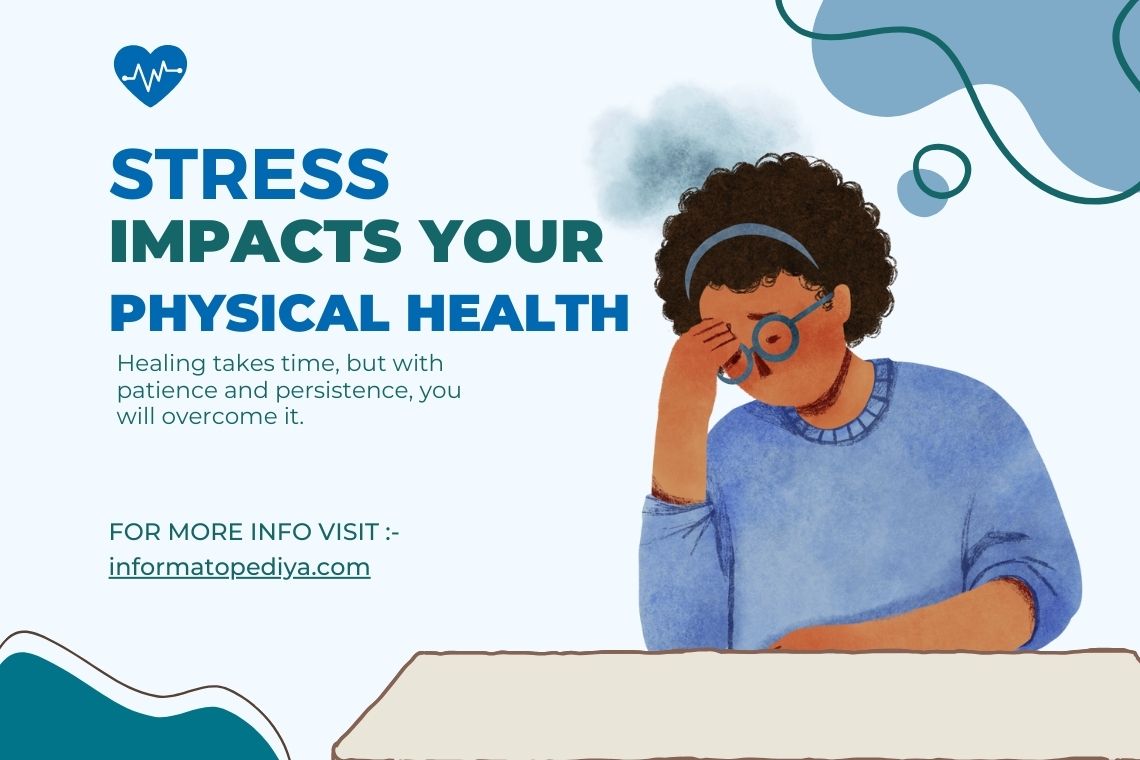
Table of Contents
7 Surprising Ways Stress Impacts Your Physical Health: Unleash Your Inner Resilience
Introduction
In today’s fast-paced world, stress has become an inevitable part of our lives. Whether it’s work-related pressure, personal challenges, or societal demands, stress can affect us all. While many perceive stress as purely a mental or emotional issue, its impact on physical health is profound and often underestimated. In this article, we will explore the surprising ways stress affects your physical health and provide tips on how to unleash your inner resilience.
Stress Affects Your Physical Health
1. Cardiovascular Problems
Stress can take a toll on your heart and blood vessels. When you’re stressed, your body releases stress hormones like cortisol and adrenaline, which can lead to increased blood pressure and heart rate. Prolonged exposure to these stress hormones can contribute to hypertension and increase the risk of heart disease.
2. Weakened Immune System
Stress weakens the immune system’s ability to defend the body against infections and illnesses. This makes you more susceptible to colds, flu, and other infections. Chronic stress can even exacerbate autoimmune conditions and slow down the healing process.
3. Digestive Issues
Stress can wreak havoc on your digestive system. It can lead to symptoms like indigestion, bloating, and irritable bowel syndrome (IBS). Stress-induced inflammation can also damage the gastrointestinal tract, increasing the risk of ulcers and other digestive disorders.
4. Weight Gain
Stress often leads to unhealthy eating habits, such as overeating or choosing comfort foods high in sugar and fat. These behaviors can contribute to weight gain and obesity, which, in turn, increase the risk of various chronic diseases like diabetes and metabolic syndrome.
5. Muscle Tension and Pain
Chronic stress can cause muscle tension and pain, particularly in the neck, shoulders, and back. This can lead to conditions like tension headaches, migraines, and even chronic pain syndromes like fibromyalgia.
6. Sleep Disturbances
Stress can disrupt your sleep patterns, leading to insomnia or poor-quality sleep. Sleep is crucial for physical and mental well-being, and chronic sleep deprivation can have a significant impact on your overall health.
7. Skin Problems
Your skin is sensitive to stress as well. Stress-induced inflammation can exacerbate skin conditions like acne, eczema, and psoriasis. It can also lead to premature aging, causing wrinkles and fine lines.
How to Unleash Your Inner Resilience
Now that we’ve explored the various ways stress can affect your physical health, it’s essential to equip yourself with tools to manage and reduce stress:
1. Practice Relaxation Techniques:
Incorporate relaxation techniques like deep breathing, meditation, and progressive muscle relaxation into your daily routine.
2. Exercise Regularly:
Physical activity helps reduce stress hormones and promotes the release of endorphins, which are natural mood lifters.
3. Maintain a Healthy Diet:
Eating a balanced diet rich in fruits, vegetables, and whole grains can support your body’s ability to manage stress.
4. Get Adequate Sleep:
Prioritize good sleep hygiene to ensure you get enough restorative sleep each night.
5. Seek Support:
Don’t hesitate to reach out to friends, family, or a mental health professional for support during stressful times.
6. Mindfulness Practices:
Incorporate mindfulness techniques into your daily routine. These practices encourage you to stay present, reduce anxiety, and better manage stress. Mindfulness meditation, yoga, and tai chi are excellent options.
7. Time Management:
Effectively managing your time can reduce stress. Prioritize tasks, set achievable goals, and avoid overcommitting yourself. Break larger tasks into smaller, more manageable steps.
8. Establish Boundaries:
Learn to say no when necessary. Setting boundaries in your personal and professional life can help prevent overwhelm and burnout.
9. Social Connections:
Cultivate and nurture meaningful relationships. Spending time with loved ones, sharing your thoughts and feelings, and offering support to others can provide emotional relief and reduce stress.
10. Healthy Hobbies:
Engage in hobbies and activities that bring you joy. Whether it’s painting, hiking, playing a musical instrument, or gardening, these activities can be therapeutic and offer a healthy outlet for stress.
11. Seek Professional Help:
If stress becomes unmanageable, don’t hesitate to seek the assistance of a mental health professional. They can provide guidance, strategies, and support tailored to your specific needs.
12. Stay Informed:
Understand the sources of your stress. Sometimes, knowing the root causes can help you find effective solutions and make necessary changes in your life.
13. Positive Self-talk:
Challenge negative thoughts and practice positive self-talk. Replacing self-criticism with self-compassion can improve your emotional resilience.
14. Regular Health Check-ups:
Ensure you have regular check-ups with your healthcare provider. Monitoring your physical health can help catch and address any stress-related issues early.
15. Engage in Laughter and Joy:
Laughter truly is one of the best medicines. Watch a funny movie, spend time with friends who make you laugh, and find moments of joy in your daily life.
By incorporating these strategies into your life, you can reduce the impact of stress on your physical health while building your resilience. Remember that everyone’s stressors and coping mechanisms are unique, so it’s essential to find what works best for you.
In conclusion
The impact of stress on physical health cannot be underestimated. Chronic stress can lead to a wide range of physical health issues, from cardiovascular problems to skin conditions. However, by taking proactive steps to manage stress and build resilience, you can minimize these effects and lead a healthier, more fulfilling life. Embrace the power of positive change and unlock your inner resilience to thrive in a world full of challenges. Your physical and mental well-being will be appreciated for it.







Your content has a way of resonating with readers on a personal level.